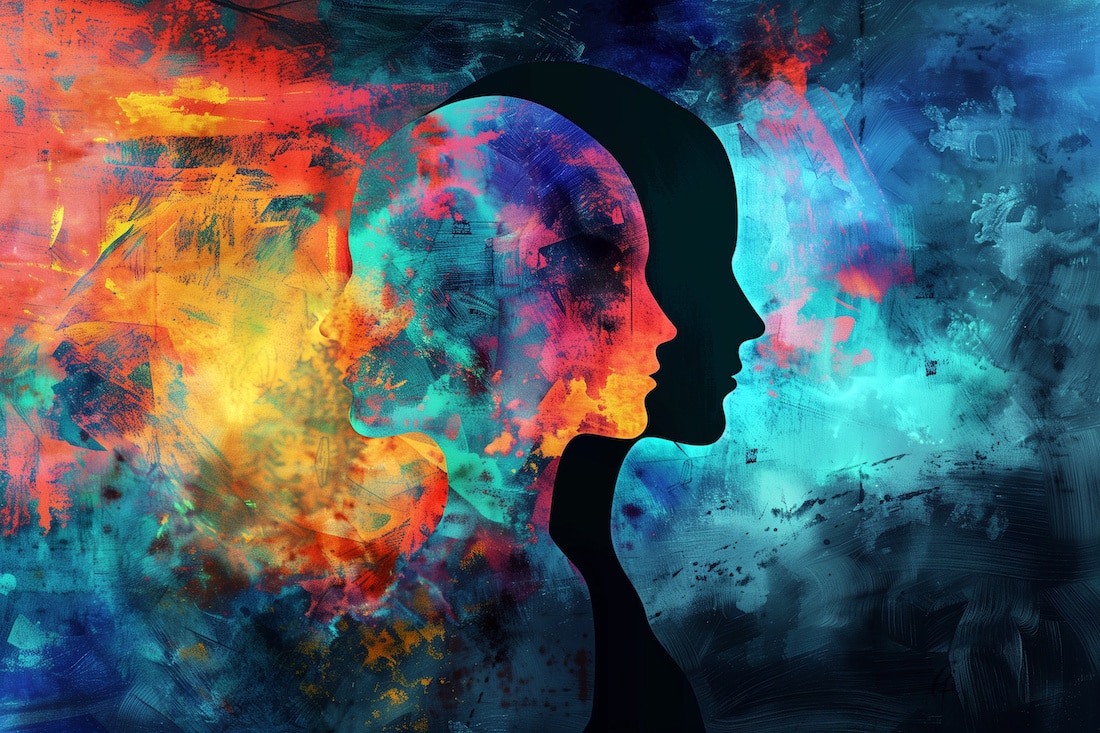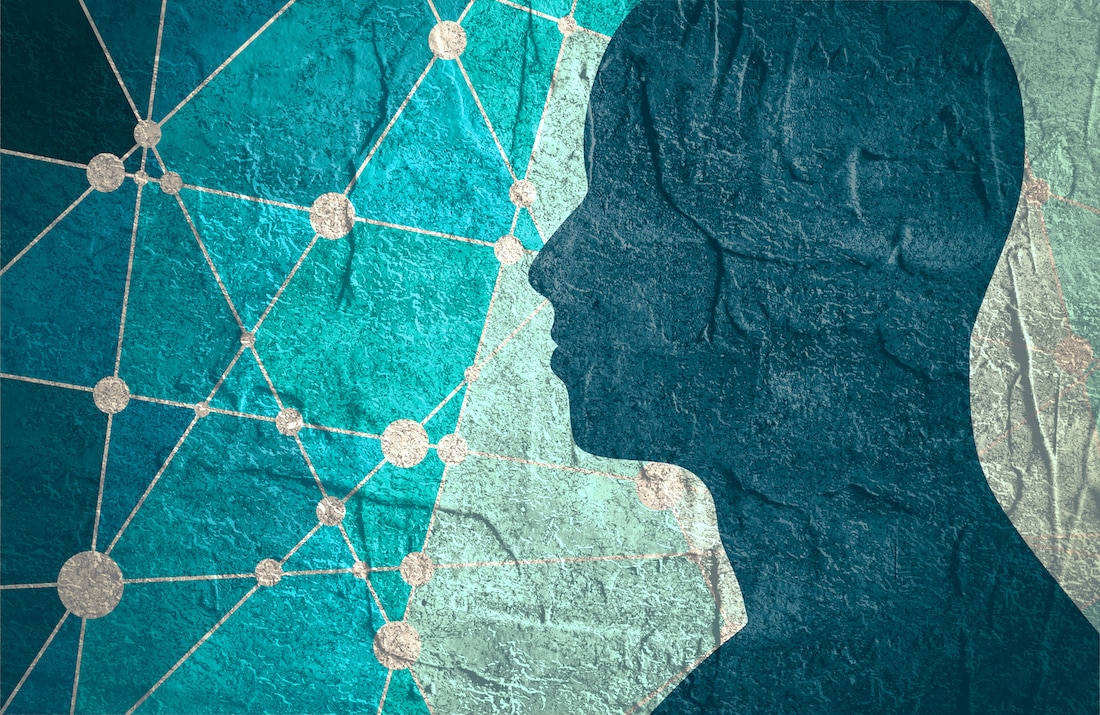Although mental health awareness is becoming more common in the United States, that doesn’t make it easier to be someone living with it day-to-day. Conditions like depression, anxiety and/or panic disorders, bipolar disorder, obsessive-compulsive disorder, and schizophrenia, amongst others make it more difficult to manage daily life.
Many people often forget that mental illness affects the whole family, not just the person with the disorder. It can be challenging as a family member or loved one of someone struggling with these issues as mental health conditions impact those, directly and indirectly, involved in their daily lives.
About 20.6% of adults in the United States experience mental illness, meaning 1 in 5 people struggle with their mental health. 1 in 20 adults experiences a serious mental illness that causes significant interruption to their daily life. Since mental illness affects the entire family system, this causes a ripple effect that touches upon the lives of millions of people every day. This is why comprehensive treatment is crucial in treating not only the identified patient but also the family and/or identified loved ones.
Mental Illness Can’t Exist in a Vacuum
It’s easy to consider the ways that mental illness affects the person living with the condition. They experience the effects and symptoms every day. They must learn to manage their illness with better coping skills in various ways if they want to thrive.
Mental illness can’t exist in a vacuum, meaning people need support from their family members or loved ones as they learn to navigate their ongoing, sustained mental health wellness during the recovery process. Depending on the severity of their mental health needs, many will require ongoing structure and support for an indeterminant amount of time.
The extent to which a person’s mental disorder affects the family depends on a variety of factors. Type of illness, the severity of the condition, and access to treatment all play a role in how much it will affect the family. The more help a person needs to deal with their condition, the more it can affect the family.
Family Relationships and Mental Illness
Each family member’s relationship to their loved one has a part too. For example, a parent will feel differently about their child’s diagnosis than another child will about their sibling. Parents who have a child with mental illness often feel a sense of responsibility for their child’s condition. They also feel conflicted about the previous plans they had for their child’s future may have played out.
On the other hand, a sibling may feel a sense of “survivor’s syndrome”, or the guilt for not being affected by mental illness. They may also feel forgotten or neglected if their sibling’s mental illness consumes much of their parent’s attention and energy. The younger a sibling is, the greater the potential impact.
Parents, children, and siblings alike are likely to experience feelings of grief following their family member’s diagnosis. They often feel confused about what their family member’s particular condition entails. They feel concerned about how that condition will affect their future as well as family dynamics moving forward.
It’s also normal to feel hurt, embarrassed, or even ashamed of a family member’s mental illness. Although people may experience guilt when admitting these feelings, they are a common part of the process. They are one of the many ways that mental illness affects the whole family.
Stigma Also Impacts the Family
Despite the large number of people who live with mental illness, a harmful stigma persists. Many still lack awareness about this reality and hold false beliefs about what it really means. Just as mental illness doesn’t exist in a vacuum, the stigma surrounding disorders does not exist in a vacuum, either.
People may believe that their loved one’s mental illness is the result of their upbringing and may look to blame themselves, their spouse, or relatives with a similar history.
Ultimately, each family member processes their loved one’s mental illness in their own way. There is no “right” or “wrong” way to understand a family member’s diagnosis – it’s a very private, individualized circumstance for all involved.
Incorporating the Family at Lifeskills South Florida
Effective mental health treatment cannot involve the identified person with the condition alone. The family is a system, and every member plays a part in the way the system works. For example, family members often develop unhealthy behavior patterns as a result of their loved one’s mental illness. Neglecting the cause-and-effect nature of the family system ignores this vital component.
Treatment facilities must acknowledge the ways that mental illness affects the whole family in order to best help their clients. This is a major part of what separates Lifeskills South Florida from other mental health treatment facilities. We recognize the crucial role that family support groups and individualized family therapy play in the treatment process and have a portion of our program dedicated to family support.
“Our family therapy program is pivotal to the success of the client. With the help of a family therapist, the client is provided a voice, a mediator, and a referee to address the relational issues that impact their struggles. Through negotiation, compromise, and acceptance, the client and family reconfigure their family system toward a more stable, fruitful family system that is self-healing.” – Daron Flory, DMFT, LMFT, MEDFT, Director of Family Services
Lifeskills Family Support Program
The Family Support Program at Lifeskills South Florida offers a family-centered approach that guides family members / loved ones through the process of treatment offering education and support. We believe recovery is not only for the person with mental illness; it’s for every member of the family, too. Families are involved from the very beginning of their loved one’s treatment program. Our program uses an approach we call “STEER”: we provide each person with Support, Training, Empowerment, and Education to lead them to individual Recovery. It’s a clear-cut, systematic approach to helping family members work through the ways their loved one’s mental illness affected them.

Our Family Support Programming includes weekly family/designee counseling sessions with your loved one’s assigned Family Therapist as well as weekly family psychoeducational support groups. We also offer Lifeskills Family Weekend program that involves their identified family system and includes a wide range of family processing exercises and workshops – this has been impacted by COVID and is currently held virtually with our team.
“I just wanted to take a moment to give a special thank you for the Family Weekend. It was such a powerful experience. The weekend format was excellent and so helpful and informative. I know we both experienced such valuable healing. I know that this was in part due to the excellent, excellent help from the staff.” – Grateful Parent
This critical component of our treatment program leads to lasting recovery not only for the person with mental illness but for their family members, too. Treating the family system as a whole instead of isolating the individual creates an environment of recovery that lasts after they leave the treatment environment.
Finding Help at Lifeskills South Florida
If you have a loved one who is battling mental illness, Lifeskills South Florida can help. We have been providing treatment to men and women battling mental health and/or substance use disorders since 1991. Our compassionate and dedicated approach to care sets us apart from other treatment programs.
Located in South Florida, Lifeskills offers individuals a non-institutionalized, comfortable setting where one can focus on recovery as well as exercise day-to-day living with 24/7 structure and support. Those in our care not only receive personalized care but additional family support to ensure that the entire family system heals during the process, not just the individual alone, which is crucial to sustained progress.
If you would like to learn more about the programs available at Lifeskills South Florida, please get in touch with us today. Give us a call or fill out a contact request form to speak with one of our admissions counselors today. We look forward to hearing from you, learning more about your loved one, and finding the program that best fits their needs!




